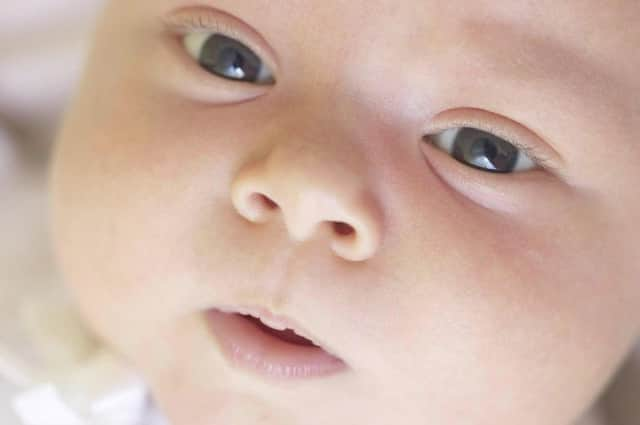Double-barrelled names growing in popularity


Experts believe the use of a hyphen in names for newborn babies may be a status symbol in class, or parents attempting originality.
While once largely confined to upper and middle-class families, the growth in popularity suggests all classes are going down the line of choosing a double-barrelled name for their child.
Advertisement
Hide AdAdvertisement
Hide AdThe latest statistics show that hyphenated names in official birth registrations have risen four-and-a-half times since the millennium.
And the use of double-barrelled names is particularly favoured by parents of baby girls, with the likes of Lily-May and Amelia-Rose currently being fashionable.
The figures for England and Wales show there were 1,200 different names involving a hyphen for girls last year.
That compares to just 260 in 2000.
According to data published last week by the Office for National Statistics, 17 per cent – or one in six – of girls’ first names in use is now double-barrelled.
They also show there were 328 different hyphenated names for boys, a tenfold rise since the 1990s.
Rose is a popular name to choose with another, with 245 different variations ranging from Amelia-Rose, given to 225 girls, and Esmae-Rose, of which there were 16.
There were also Dolly-Rose, Dakota-Rose and Destiny-Rose, as well as 59 Summer-Roses, five Winter-Roses and four spelt as Wynter-Rose.
Meanwhile, there is a growing number of other forms of punctuation, including apostrophes. Three baby girls were named J’adore last year.
Advertisement
Hide AdAdvertisement
Hide AdDr Jane Pilcher, a sociologist and expert on names from Leicester University, said the trend appeared to show parents were trying to make their child “uniquely identifiable”.
She added: “I think there is pressure to stand out. This enables people to do that without going down the route of really wacky first names.”
Peter York, who specialises in British class trends and is the author of the Sloane Ranger Handbook, said double-barrelled names were once favoured among upper middle class families.
He added: “Several friends of mine who are now mature women were called this sort of name: Sarah-Jane, Sally-Anne, Sarah-Louise.
“They were all Knightsbridge girls. What we see here isn’t that at all.”
Siobhan Freegard, of the parenting network Channel Mum, warned parents hyphenated names might soon be seen as outdated, adding: “I think it will start to be seen as a bit downmarket.”
It is believed the origin of double-barrelled names may have come from the United States.
However, Laura Wattenberg, a US-based names expert and author of The Baby Name Wizard, said the UK seemed to be leading the way in the use of hyphenated names.
She added: “It is one of a couple of ways in which UK naming trends are charting their own direction from the rest of the English-speaking world.”